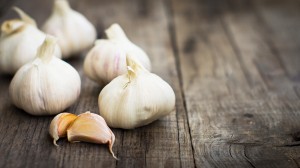 Botanical Medicine has been used for thousands of years in so many different forms. Many people think that this is a primitive form of medicine, when in fact it can be quite comparable to some pharmaceutical drugs in some cases. This article looks at what botanical medicine is, how it can be used, and what for.
Botanical Medicine has been used for thousands of years in so many different forms. Many people think that this is a primitive form of medicine, when in fact it can be quite comparable to some pharmaceutical drugs in some cases. This article looks at what botanical medicine is, how it can be used, and what for.
What is Botanical Medicine?
Botanical medicine involves the use of plants or herbs to achieve therapeutic outcomes. Specific plants or herbs are chosen based off of their medicinal effects in order to aid the individual in question. Botanicals can have multiple effects on multiple organ systems making them quite effective in the sense that they may be able to help with more than one problem. For example, Chamomile can be quite calming on the stomach and promote digestion, but can also be calming on the nervous system, making it potentially beneficial for indigestion and anxiety.
In addition, when more than one herb is combined to achieve a therapeutic goal, they can often have a synergistic effect. What this means is they both possess potent capabilities on their own, but when combined, the effect far exceeds that of them simply being added together. For example, if herb A is 2 and herb b is 2, when added together, you would assume that it would be 4, but it is actually more like 10!
How is Botanical Medicine used?
As alluded to above, herbs can be used on their own or in combination, and can be used in several different forms. They can be made into tinctures, teas, poultices, and salves. Tinctures are alcohol extractions of herbs, often containing a higher dose of herbs in small quantities. Teas are dried herbs that have medicinal properties extracted through hot water. Poultices involve applying herbs topically (externally to the skin). Salves are a combination of herbs in various forms with an ointment.
No form of herbs is necessarily right, but really depends on the patient’s particular case. For example, a poultice may be more appropriate for skin issues than a tincture.
What can botanical medicine be used for?
Botanical Medicine can be used for a variety of concerns. In my practice, I primarily use teas and poultices. I find that both of these forms can be beneficial in quite a few concerns including those listed below.
- Adrenal Fatigue
- Allergies
- Anxiety
- Arthritis
- Burn out
- Colds and flus
- Constipation
- Coughs
- Depression
- Detoxification
- Diarrhea
- Diabetes
- Digestive Concerns
- Eczema
- Fatigue
- Fertility
- Fevers
- Fungal Infections
- Headaches
- Heartburn/GERD
- Hemorrhoids
- Hypertension (high blood pressure)
- IBS
- Infections
- Insomnia
- Menstrual issues
- Migraines
- Pain
- Psoriasis
- Stress
- Weight loss
If you would like a custom tea made specific for you and your health concerns, please contact myself, Dr. Elisha Cook ND via the contact portion of my page and book your appointment today!
Have you benefited from reading this blog? Know someone that would benefit as well? Share, Like, Comment, or Tweet this article, and let me know what you think.
Some of the information provided above may not be appropriate for everyone, please consult with your doctor before trying any of the above. If you are interested in Naturopathic Medicine and wanting a different approach to your health care needs, contact Dr. Elisha Cook ND by calling 519-537-7058 and book your appointment today!



 Garlic has been used for many centuries to prevent and treat diseases due to its health promoting properties. Historical documents have found that garlic was used to keep working class citizens strong and productive, as well as keep them free of abnormal growths or tumours, diarrhea, worms, and cardiovascular difficulties.
Garlic has been used for many centuries to prevent and treat diseases due to its health promoting properties. Historical documents have found that garlic was used to keep working class citizens strong and productive, as well as keep them free of abnormal growths or tumours, diarrhea, worms, and cardiovascular difficulties.